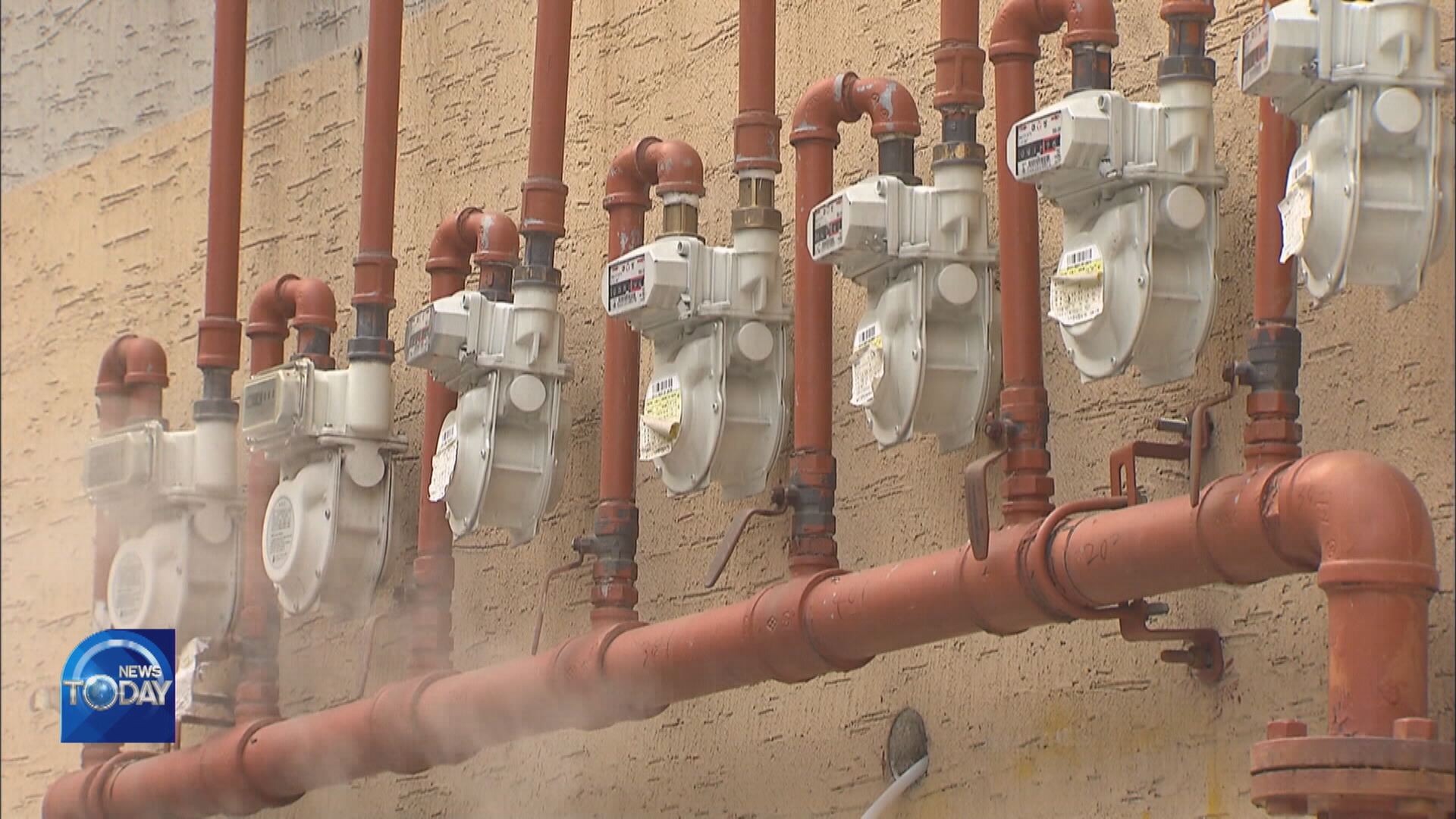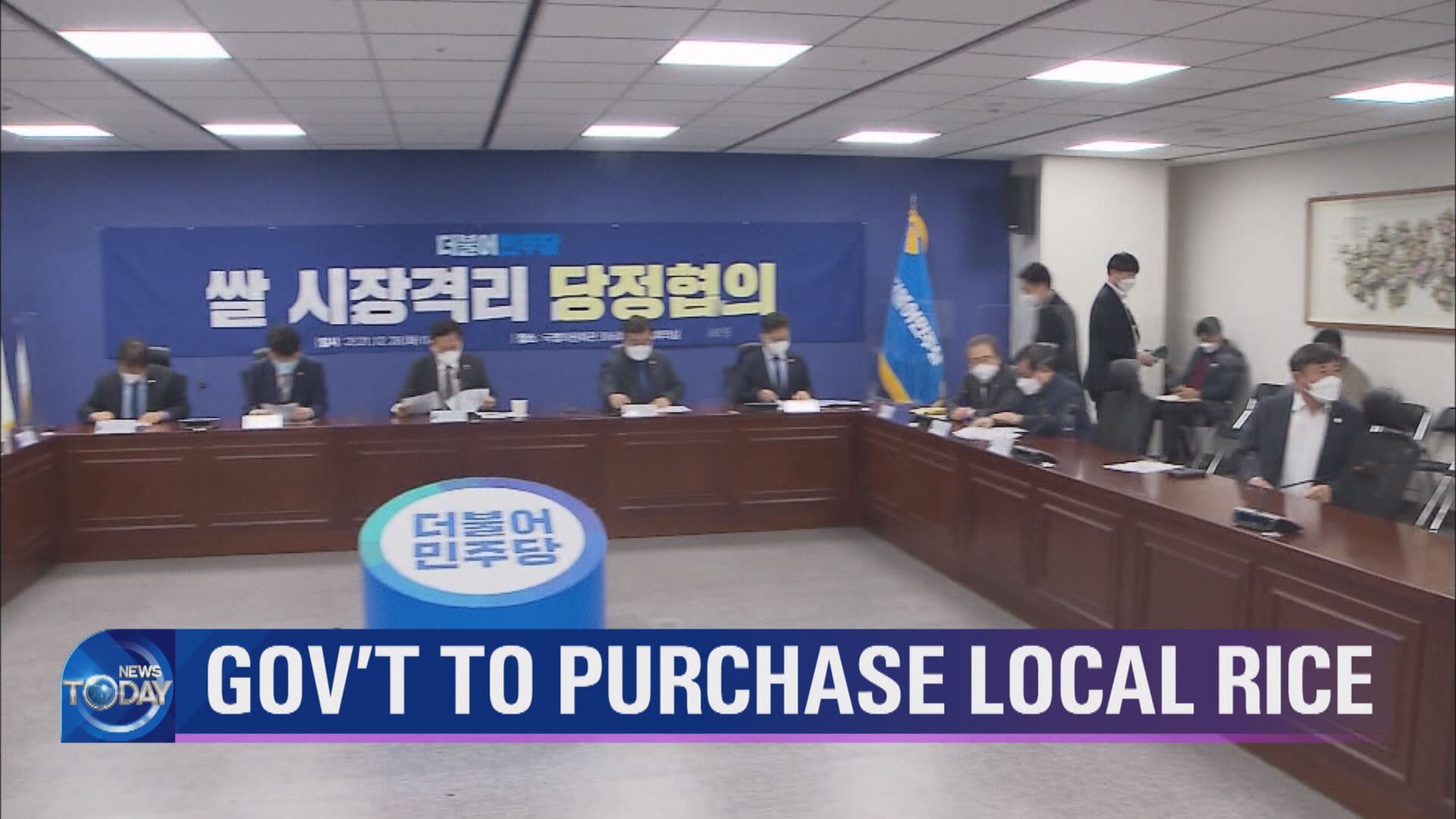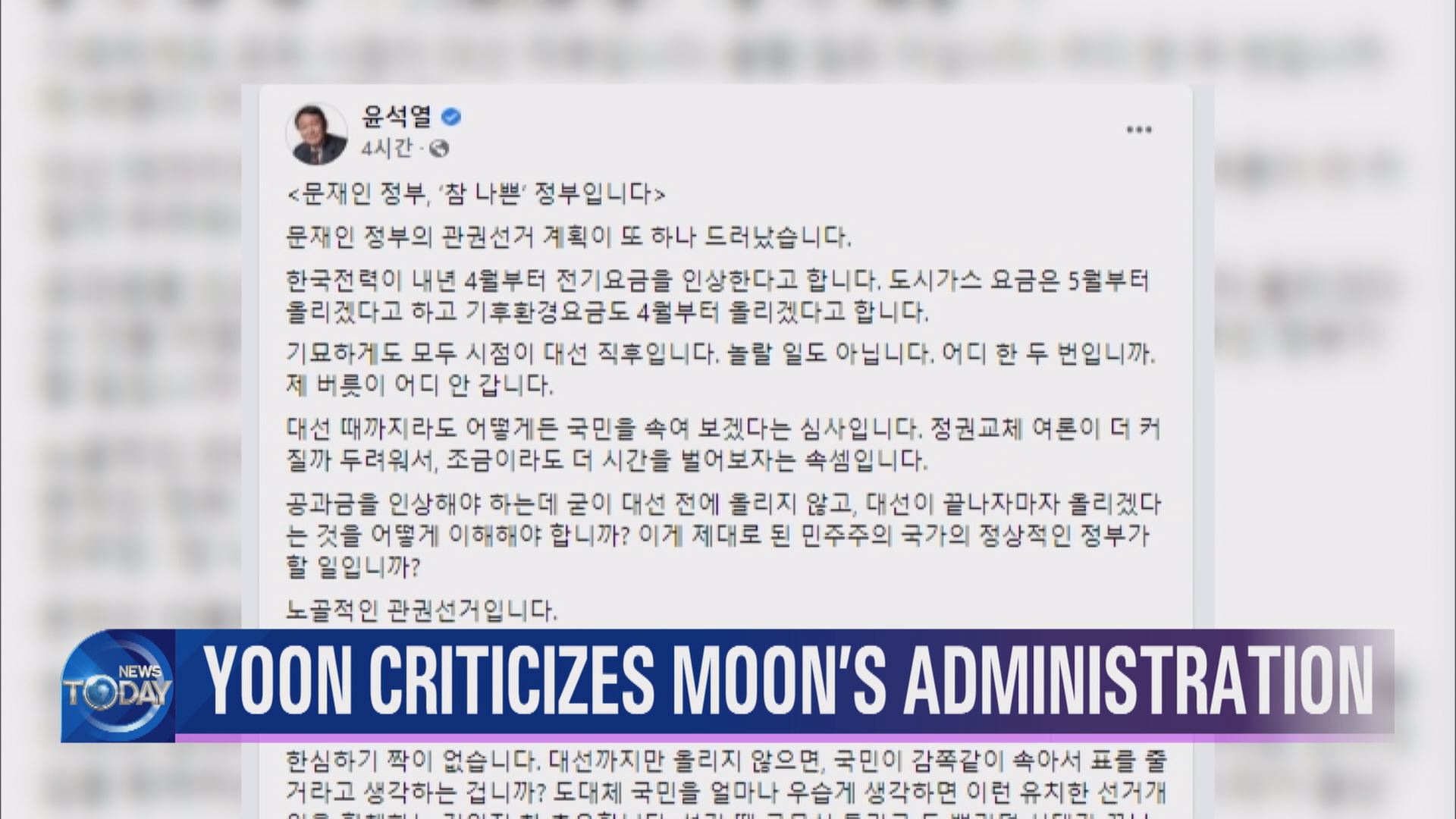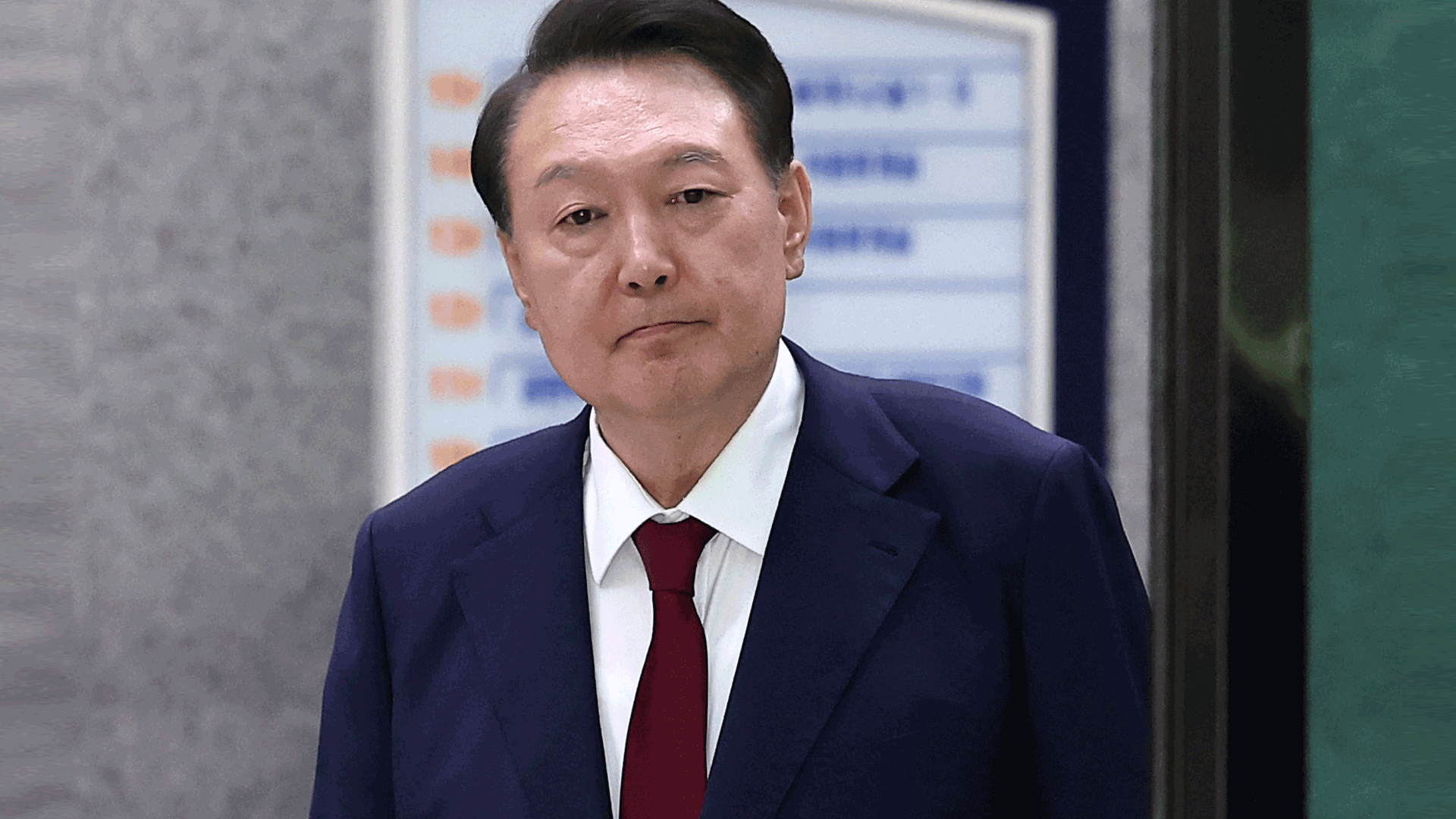ELECTRICITY & GAS FEES TO BE INCREASED
입력 2021.12.28 (15:15)
수정 2021.12.28 (16:46)
읽어주기 기능은 크롬기반의
브라우저에서만 사용하실 수 있습니다.
[Anchor Lead]
The government has decided to raise electricity and gas fees after the presidential election slated for March. It says the move is inevitable to reduce the burden of energy state corporations in the face of soaring fuel prices.
[Pkg]
[Soundbite] Hong Nam-ki(Deputy Prime Minister(Dec. 20)) : "We will try to keep consumer prices at 2.2%, lower than this year's."
A week ago, the government announced its decision to freeze public utility charges for the first quarter of 2022 in a bid to stabilize consumer prices. But on Monday it said electricity and gas prices would be raised in the second quarter of next year. The raise will come in April, after the presidential election. Basic fuel prices, which determine electricity fees, will be raised twice, by 4.9 won per kWh at a time, first in April and then again in October, resulting in a total hike of 9.8 won. Environmental protection fees reflecting environmental policy costs will be raised by 2 won per kWh from April. The overall increase rate is 5.6 percent. For households consisting of four members, it would mean an average monthly hike of 1,950 won for electricity. Gas fees are to be increased in May by 1.23 won per MJ. In July and October, they will be raised again by 1.9 won and 2.3 won per MJ, respectively. This means two thousand MJs of gas will cost 33,050 won from October instead of the current 28,450 won -- an increase of 4,600 won. The Korea Electric Power Corporation and the Korea Gas Corporation say the fees will be raised at different times to alleviate consumers' burden and that the increase is in line with the fuel adjustment mechanism. However, this is far from enough to cut state energy corporations' losses sustained over the past year due to frozen fees.
[Soundbite] Chung Yeon-je(Korea Energy Economics Institute) : "The increase reflects only rising fuel prices, but in fact it must reflect other factors as well."
Some say authorities are postponing raising electricity and gas fees deliberately ahead of the presidential election. But others say it's just the beginning.
The government has decided to raise electricity and gas fees after the presidential election slated for March. It says the move is inevitable to reduce the burden of energy state corporations in the face of soaring fuel prices.
[Pkg]
[Soundbite] Hong Nam-ki(Deputy Prime Minister(Dec. 20)) : "We will try to keep consumer prices at 2.2%, lower than this year's."
A week ago, the government announced its decision to freeze public utility charges for the first quarter of 2022 in a bid to stabilize consumer prices. But on Monday it said electricity and gas prices would be raised in the second quarter of next year. The raise will come in April, after the presidential election. Basic fuel prices, which determine electricity fees, will be raised twice, by 4.9 won per kWh at a time, first in April and then again in October, resulting in a total hike of 9.8 won. Environmental protection fees reflecting environmental policy costs will be raised by 2 won per kWh from April. The overall increase rate is 5.6 percent. For households consisting of four members, it would mean an average monthly hike of 1,950 won for electricity. Gas fees are to be increased in May by 1.23 won per MJ. In July and October, they will be raised again by 1.9 won and 2.3 won per MJ, respectively. This means two thousand MJs of gas will cost 33,050 won from October instead of the current 28,450 won -- an increase of 4,600 won. The Korea Electric Power Corporation and the Korea Gas Corporation say the fees will be raised at different times to alleviate consumers' burden and that the increase is in line with the fuel adjustment mechanism. However, this is far from enough to cut state energy corporations' losses sustained over the past year due to frozen fees.
[Soundbite] Chung Yeon-je(Korea Energy Economics Institute) : "The increase reflects only rising fuel prices, but in fact it must reflect other factors as well."
Some say authorities are postponing raising electricity and gas fees deliberately ahead of the presidential election. But others say it's just the beginning.
■ 제보하기
▷ 카카오톡 : 'KBS제보' 검색, 채널 추가
▷ 전화 : 02-781-1234, 4444
▷ 이메일 : kbs1234@kbs.co.kr
▷ 유튜브, 네이버, 카카오에서도 KBS뉴스를 구독해주세요!
- ELECTRICITY & GAS FEES TO BE INCREASED
-
- 입력 2021-12-28 15:15:23
- 수정2021-12-28 16:46:10

[Anchor Lead]
The government has decided to raise electricity and gas fees after the presidential election slated for March. It says the move is inevitable to reduce the burden of energy state corporations in the face of soaring fuel prices.
[Pkg]
[Soundbite] Hong Nam-ki(Deputy Prime Minister(Dec. 20)) : "We will try to keep consumer prices at 2.2%, lower than this year's."
A week ago, the government announced its decision to freeze public utility charges for the first quarter of 2022 in a bid to stabilize consumer prices. But on Monday it said electricity and gas prices would be raised in the second quarter of next year. The raise will come in April, after the presidential election. Basic fuel prices, which determine electricity fees, will be raised twice, by 4.9 won per kWh at a time, first in April and then again in October, resulting in a total hike of 9.8 won. Environmental protection fees reflecting environmental policy costs will be raised by 2 won per kWh from April. The overall increase rate is 5.6 percent. For households consisting of four members, it would mean an average monthly hike of 1,950 won for electricity. Gas fees are to be increased in May by 1.23 won per MJ. In July and October, they will be raised again by 1.9 won and 2.3 won per MJ, respectively. This means two thousand MJs of gas will cost 33,050 won from October instead of the current 28,450 won -- an increase of 4,600 won. The Korea Electric Power Corporation and the Korea Gas Corporation say the fees will be raised at different times to alleviate consumers' burden and that the increase is in line with the fuel adjustment mechanism. However, this is far from enough to cut state energy corporations' losses sustained over the past year due to frozen fees.
[Soundbite] Chung Yeon-je(Korea Energy Economics Institute) : "The increase reflects only rising fuel prices, but in fact it must reflect other factors as well."
Some say authorities are postponing raising electricity and gas fees deliberately ahead of the presidential election. But others say it's just the beginning.
The government has decided to raise electricity and gas fees after the presidential election slated for March. It says the move is inevitable to reduce the burden of energy state corporations in the face of soaring fuel prices.
[Pkg]
[Soundbite] Hong Nam-ki(Deputy Prime Minister(Dec. 20)) : "We will try to keep consumer prices at 2.2%, lower than this year's."
A week ago, the government announced its decision to freeze public utility charges for the first quarter of 2022 in a bid to stabilize consumer prices. But on Monday it said electricity and gas prices would be raised in the second quarter of next year. The raise will come in April, after the presidential election. Basic fuel prices, which determine electricity fees, will be raised twice, by 4.9 won per kWh at a time, first in April and then again in October, resulting in a total hike of 9.8 won. Environmental protection fees reflecting environmental policy costs will be raised by 2 won per kWh from April. The overall increase rate is 5.6 percent. For households consisting of four members, it would mean an average monthly hike of 1,950 won for electricity. Gas fees are to be increased in May by 1.23 won per MJ. In July and October, they will be raised again by 1.9 won and 2.3 won per MJ, respectively. This means two thousand MJs of gas will cost 33,050 won from October instead of the current 28,450 won -- an increase of 4,600 won. The Korea Electric Power Corporation and the Korea Gas Corporation say the fees will be raised at different times to alleviate consumers' burden and that the increase is in line with the fuel adjustment mechanism. However, this is far from enough to cut state energy corporations' losses sustained over the past year due to frozen fees.
[Soundbite] Chung Yeon-je(Korea Energy Economics Institute) : "The increase reflects only rising fuel prices, but in fact it must reflect other factors as well."
Some say authorities are postponing raising electricity and gas fees deliberately ahead of the presidential election. But others say it's just the beginning.
이 기사가 좋으셨다면
-
좋아요
0
-
응원해요
0
-
후속 원해요
0















![[단독] 윤석열 정부, ‘대통령실 공사비 미지급’ 피소](/data/news/2025/06/30/20250630_8MRvHk.png)

이 기사에 대한 의견을 남겨주세요.